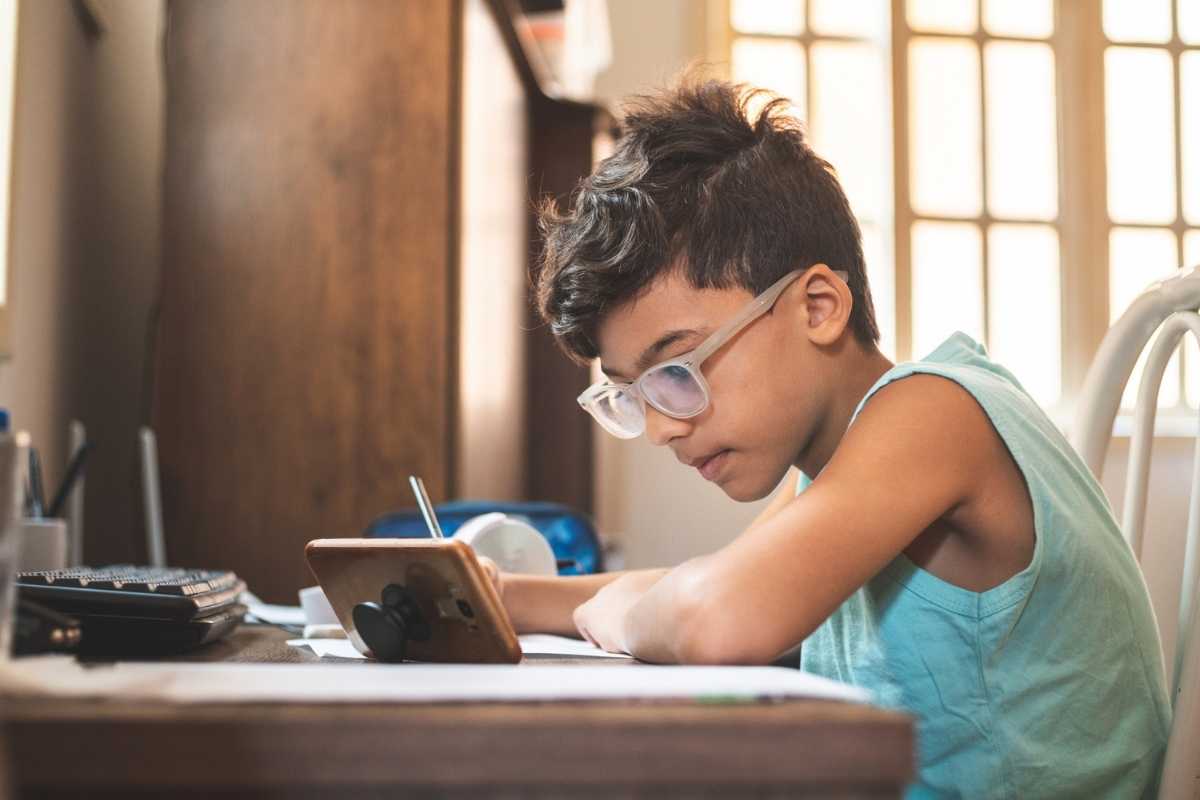
Is it time for an eye test? An OPSM optometrist shares a few tips for looking after little eyes this school year.
Seeing as clearly as possible gives your child lots of advantages in how they experience the world – at school, at home and at play.1
Good vision can play a key role in kids’ learning and performance, as well as supporting their physical, social and behavioural development.1
One in five Australian children has an undetected vision problem1, so HBF optical partner OPSM encourages parents to include an eye test as part of your child’s back-to-school checklist this year.
We talked to OPSM optometrist Elizabeth Kodari for some more kids’ eyecare tips.
In this article
How do you know if your child needs glasses?
Vision problems such as myopia (short-sightedness), hyperopia (long-sightedness) and astigmatism (blurred vision caused by an irregular eye shape) are common in Australians of all ages, and usually develop in childhood.2
That’s why it’s recommended that all children have a full eye examination before starting school, or sooner if they are experiencing vision problems.3
“Unfortunately, children are not very good at assessing their own vision,” Kodari says.
“They assume what they are seeing is ‘normal’ and unless they have regular eye tests, vision problems can often go undetected.
“Even if your child doesn’t seem to be having any vision trouble, it’s important to keep up with regular eye tests.”
A few signs that your child may need glasses include:1
- Difficulty reading or completing schoolwork
- Complaints of headaches or blurred/double vision
- Squinting
- Holding a book very close while reading
- Frequent blinking or rubbing their eyes
- Having trouble recognising things or people in the distance
Tips for kids’ glasses
If your child does need glasses, it’s important to encourage them to wear them regularly, especially at school.
A few tips for choosing kids’ glasses – and getting them excited about wearing them – include:
- Let your child help choose the frames so they’re more likely to wear them happily. Your optometrist can help guide you on what styles will be good options.
- Point out positive examples of people they like or admire who wear glasses – whether they’re fictional characters, celebrities or people they know in real life.
- Make sure they fit well. Glasses should be comfortable to wear – not too tight and not too loose.
- Choose the right lens material. OPSM recommends polycarbonate lenses for kids’ glasses because they’re safe and durable for the playground.4
- Keep them clean. Remind your child to regularly wipe the lenses with a microfibre cleaning cloth, so those smudges don’t get in the way of clear vision.
Aim for less screen time, more outdoor play
“Another way to support good eyesight for kids is to ensure they spend plenty of time outdoors, and limit the amount of time they spend focusing on digital screens,” Kodari says.
Too much time spent indoors in unnatural light has been found to increase children’s risk of developing myopia (short-sightedness), and of myopia progressing.5
“For necessary screen time, follow the 20-20-20 rule,” she suggests. “Every 20 minutes, focus on an object 20 feet (6m) away for about 20 seconds. This can help their eyes relax and adjust focus.”
Don’t forget sunglasses
While outdoor play is important for kids’ vision, don’t forget about sun safety.6
“The sun’s UV rays can reflect off surfaces including water, sand and snow, and have been associated with long term conditions including cataracts and conjunctival changes,” Kodari says.
“It’s important to wear quality sunglasses to help protect your child’s eyes. Make sunglasses a part of your child’s ‘slip, slop, slap’ routine.”
Support eye health with good nutrition
A healthy diet rich in antioxidants and omega-3 fatty acids can also help support good eye health.7
“Try providing your child with nutritious snacks such as fruit and nuts in their lunchbox and eating oily fish or eggs a couple of times a week,” Kodari says.
For vision and overall health, developing positive habits now can help set your child up for a healthier future.
Does health insurance cover glasses?
- HBF optical cover can give you 100% back on prescription glasses and contact lenses, up to your annual limit.
If you’re an HBF member, you can check what you're covered for by logging on to myHBF or calling us on 133 423.
Save at OPSM with HBF Member Perks
HBF health members can save at OPSM with special offers on glasses and contact lenses.
Visit HBF Member Perks to view current offers. (T&Cs apply)
Feast your eyes on affordable optical cover
With HBF extras, you can get 100% back on prescription glasses and contacts, up to your annual limit.
Find out more
Disclaimer:
This article contains general information only and does not take into account the health, personal situation or needs of any person. In conjunction with your GP or treating health care professional, please consider whether the information is suitable for you and your personal circumstances.